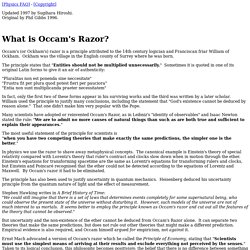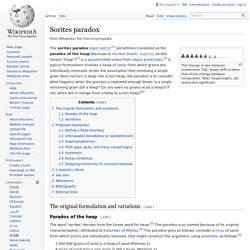

Christopher Hitchens - Tony Blair God Debate. Psychological ("personality") Types. Psychological ("personality") Types According to Jung's theory of Psychological Types we are all different in fundamental ways.

One's ability to process different information is limited by their particular type. These types are sixteen. People can be either Extroverts or Introverts, depending on the direction of their activity ; Thinking, Feeling, Sensing, Intuitive, according to their own information pathways; Judging or Perceiving, depending on the method in which they process received information. Extroverts vs. Extroverts are directed towards the objective world whereas Introverts are directed towards the subjective world. Sensing vs. Sensing is an ability to deal with information on the basis of its physical qualities and its affection by other information. Thinking vs. Thinking is an ability to deal with information on the basis of its structure and its function. Perceiving vs. Perceiving types are motivated into activity by the changes in a situation.
ENTp , ISFp , ESFj , INTj , ENFj. The History of Philosophy, from 600 B.C.E. to 1935, Visualized in Two Massive, 44-Foot High Diagrams. The history of philosophy tends to get mightily abbreviated.

The few philosophy professors I know don’t have much truck with generalist “history of ideas”-type projects, and the discipline itself encourages, nay, requires, intensive specialization. Add to this glib comments like Alfred North Whitehead’s on philosophy as a “series of footnotes to Plato,” and the eminent position of the erratic and comparatively philosophically-unschooled autodidact Wittgenstein, and you have, in modern philosophy, a sad neglect of the genealogy of thought. Note: to see the diagrams in detail, you will need to click the links above, and then click again on the images that appear on the new web page.
Related Content: The History of Philosophy … Without Any Gaps The Illustrated Guide to a Ph.D. Download 90 Free Philosophy Courses and Start Living the Examined Life Josh Jones is a writer and musician based in Washington, DC. Proof of the existence of God set down on paper.
What is Occam's Razor? [Physics FAQ] - [Copyright] Updated 1997 by Sugihara Hiroshi.

Original by Phil Gibbs 1996. Occam's (or Ockham's) razor is a principle attributed to the 14th century logician and Franciscan friar William of Ockham. Ockham was the village in the English county of Surrey where he was born. The principle states that "Entities should not be multiplied unnecessarily. " "Pluralitas non est ponenda sine neccesitate" "Frustra fit per plura quod potest fieri per pauciora" "Entia non sunt multiplicanda praeter necessitatem" In fact, only the first two of these forms appear in his surviving works and the third was written by a later scholar. Many scientists have adopted or reinvented Occam's Razor, as in Leibniz's "identity of observables" and Isaac Newton stated the rule: "We are to admit no more causes of natural things than such as are both true and sufficient to explain their appearances.
" In physics we use the razor to shave away metaphysical concepts. References: W. W. Sorites paradox. The change in size between consecutive "big" heaps (left) is twice that of the change between consecutive "little" heaps (right), yet seems less significant.

The original formulation and variations[edit] Paradox of the heap[edit] The word "sorites" derives from the Greek word for heap.[5] The paradox is so named because of its original characterization, attributed to Eubulides of Miletus.[6] The paradox goes as follows: consider a heap of sand from which grains are individually removed. One might construct the argument, using premises, as follows:[4] 7006100000000000000♠1000000 grains of sand is a heap of sand (Premise 1) A heap of sand minus one grain is still a heap. 7006100000000000000♠1000000 grains is a heap. If 7006100000000000000♠1000000 grains is a heap then 7005999999000000000♠999999 grains is a heap. So 7005999999000000000♠999999 grains is a heap.
If 7005999999000000000♠999999 grains is a heap then 7005999998000000000♠999998 grains is a heap. If ... Philosophy Timeline.